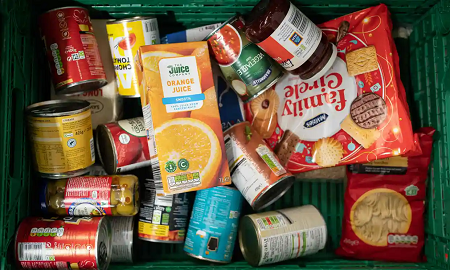Expanding food banks is no substitute for tackling poverty, charities warn
Letter to the Observer signed by experts from around the world says proper government policies are needed
A “growing reliance” on food banks across the world risks discouraging proper state policies to deal with poverty, according to a joint warning issued by academics and charities.
A letter to the Observer, signed by scores of organisations and academics from several countries, warns that food banks are not a permanent solution. They add that the planned expansion of food banks to new countries could exacerbate the problem.
“The extraordinary efforts of food bank teams, increasingly backed by corporate involvement, should not blind us to the fact that an emergency food parcel cannot do more than temporarily alleviate hunger,” writes the group, which includes the Independent Food Aid Network in the UK, as well as academics in Britain, the US, Canada, Austria and Germany.
“All 38 member countries of the OECD [Organisation for Economic Co-operation and Development] now rely on a privatised charitable food aid model often dependent on volunteer labour. The ubiquity of corporate food charity in high-income countries should provide a stark warning.”
Archie Bland and Nimo Omer take you through the top stories and what they mean, free every weekday morning
The group adds: “We need real, long-term solutions based on rights and social justice. Only governments can guarantee these rights. Adopting a ‘cash first’ approach to food insecurity is vital to ensure people can access income before charity, but equally vital is the prioritisation of systemic changes to truly tackle poverty and inequality.”
It comes after the UK’s leading poverty charities said the basic benefits given to low-income households are at least £140 a month below the real cost of food, energy and everyday basics. Research from the Joseph Rowntree Foundation and the food bank network the Trussell Trust said inadequate benefits were the main driver of the big rise in destitution. They urged the government to formally bring universal credit rates into line with minimum living costs.
There have been plans from international organisations to expand the model into new countries. However, the letter to the Observer states: “While the expansion of organised surplus food redistribution might seem like a win-win solution, this practice fails to reduce food waste levels while undermining policies designed to address food insecurity.”
For more information:
Global Solidarity Alliance for Food, Health and Social Justice (rightsnotcharity.org)
Photo: This ‘family food parcel’ is intended to feed four people for three days. Source: Oli Scarff/AFP/Getty Images.














